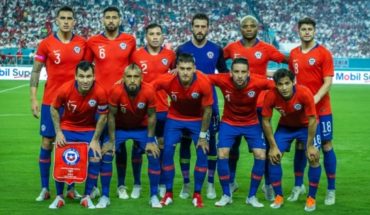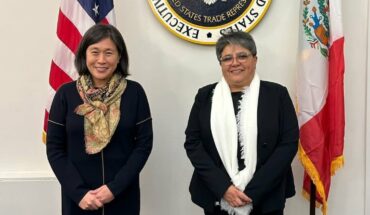I have problems with the word “want”, but not because of a couple. It has nothing to do with romanticism or sex. Nor is it related to flowers, candies or to go dancing. My problem with love has to do with a man, my best friend, Kichi. I think at this point I’ve told you five or six times that I love him, but he never tells me. When people say “I love you,” especially when they do it for the first time, there are certain things they may be saying. Maybe it’s “Do You love Me?” (The question that slips in the midst of the confession) or, perhaps, say, with greater despair, “Love me, please.” With Kichi It’s not like that. I know he loves me. I can feel it all the time. I don’t have to ask you to love me. I have No need to ask. I say I want it for a very simple reason: it is an undeniable fact. But he doesn’t tell me. Most of the time I told him when to say goodbye, a couple of times while we were talking on the phone, once when I was drunk, and another when he felt hurt and I tried to console him. There’s always a moment of silence and then it says something like, “Yes, bro, I’ll see you later.” I don’t need you to tell me exactly the same thing, but I wonder what keeps you from uttering those words. What is it that prevents almost all young men from telling their male friends they love them? When I was 8 years old, I had my first best friend. Pedro was thin as a noodle, nervous and had tousled hair, full of that untamed tenderness that only children have. When I moved to Philadelphia, I was welcomed – I was that new and nervous child in school – and I sheltered under their wings.
Pedro and I spent the weekends walking with his mother on the trails of the forest near his house. He and I walked slowly, holding hands while advanceding, with fingers clasped. To this day, whenever I participate in the sacred human practice of holding hands, I think of Peter. In one of our walks, another child, a neighbor of Peter, interrupted us by giving a blow between our hands, which frightened us.
Do you shake hands?, he asked. That’s gay
I remember I didn’t know exactly what the meaning of “gay” was, but when I heard other children saying the word, I imagined it was something you didn’t want to be. I had the terrible feeling that the outside world had burst into our silent green space. Peter and I never took the hand again. We continued to worrying for each other, but that day we understood that we had to regulate our interest in the other, restrain it, apply a key to it and never let it go out. We learned it at the hands of another child of our age, who probably learned it from another child of any age. Peter and I learned what men in the United States have learnt repeatedly: that tenderness must be regulated according to a set of codes that we must know very well, as if our survival depended on it. It is a lesson that has been taught over many years, has been passed from one generation to another and, as if it were the best of the lessons learned, it turns on you until you can hardly distinguish where the lesson ends and where you begin. Every man has a list of all the men he has wanted without ever having found the words to tell him. I met Kichi in the middle of my first year in college, when I was again that nervous child who, on this occasion, was hosting a party. I have always lived with a set of rotational tics generated by anxiety. That year I had fond of twisting the cord of my university where I carried my key, has entangled him and desenredándolo on my finger. When people began to enter my bedroom, I started to make the nervous turns without realizing what I was doing until I heard a tronido and saw that my key had hit the iPhone screen of a stranger and had made a small scratch. The stranger was Kichi. The first message I sent was an apology the next morning. He was kind and accepted the apology. We agreed to go out and hang out. The first year is a good time to stick to people. I started dating Kichi more and more often, until we went out almost daily, and then several times a day. When it came time to look for accommodation for the second year, we decided to share housing. We made crumbs soon, as we were both eager to be rooted in a new place. We are still united with the passage of time because there was nothing that felt more natural. Kichi and I are mestizos, our mothers are white, our migrant parents with names difficult to pronounce. We come from cities that pride us: he from Seattle and me from Philadelphia, but in most respects we are different. He is calm and relaxed, walks on a skateboard, has his clothes folded and tidy, writes poems and Loves immunology. When it’s sad, it doesn’t stay that way for a long time. I admire how thoughtful and silent it is and the balance it gives to your life. When I tell my problems with a girlfriend, my problems with writing or other things, any little thing that says or note always turns me around in the head for days. I appreciate your constancy and he appreciates that I am sensitive and that he is almost never balanced or serene at all. He likes it to be a disaster and a half awkward. When our friendship became closer, I began to learn certain habits of him and he began to adopt some of mine. He likes it to be a disaster, and maybe that’s why I know he loves me. Anyway, what else could I want? The codes that men follow about love are misleading. For example, although they disapprove of saying “I love you” directly, sometimes telling another man “I appreciate you” or “I take you in the heart” is fine. It might even be permissible to say “I love you” if you say it immediately from a “brother” or “friend”. These are the linguistic things that masculinity forces us to do, the negotiations we do with language to keep ourselves within the acceptable limits of manhood. You would have to add a footnote to this code. Sometimes the most inconvenient or terrible circumstances can provoke an acceptable expression of love, but only at that specific time, and never should be touched again. Two years ago, Kichi and I took sabbatical semesters from the university and spent a season in Colombia, where my father is originally from. One day, when we were in the seaside town of Capurganá, I suddenly got sick and the fever and dizziness caused me to fall on my knees as I walked along the beach.
I was afraid of getting sick so mysteriously in a place where it might be hard to get help. Kichi looked for a doctor all over town. By not finding any, he decided that his preparatory course of medicine would have to be enough and he waited for me. He put his hand on my forehead. Whispered in my ear. I repeated over and over again that I would improve… Until it was. This was perhaps the most intimate moment between us, provoked by my illness and unthinkable at any other time. This is the code, both intricate and long-range. Kichi and I don’t have the typical characteristics of the male college boys. We are not part of a fraternity or a sports team. We have not even talked more than once about masculinity and the absurd things that it demands, yet we have lived in this world. We grew up as men in America. We learned this code and practiced it. There’s no immunity. There is a part of this story that I have not yet recognized: every time I tell Kichi “I love you,” I feel uncomfortable. I notice the weirdness of the statement myself. The lesson is immersed in the deep. I doubt, I retract, but in my conscious mind, I know what I mean, so I try to say it. I want to tell Kichi I love him and just mean that. I don’t want there to be any desire or questioning or expectation hidden in my words. I want to love in a way that exceeds the need for confirmation or reciprocity. This is what I have come to know as the most sincere love: Expect nothing in return. I still have hope. It’s not that I need to hear those words. I’m just ready to get rid of all the forces, the voices and the gestures that prevent us from uttering them. Still, I can’t help but wish that someday Kichi forget all that male noise, look me in the eye and just say, “I love you too.”
—Ricardo F. Jaramillo, a native of Philadelphia, one of the finalists in the Modern Love contest of university essays.
Original source in Spanish





